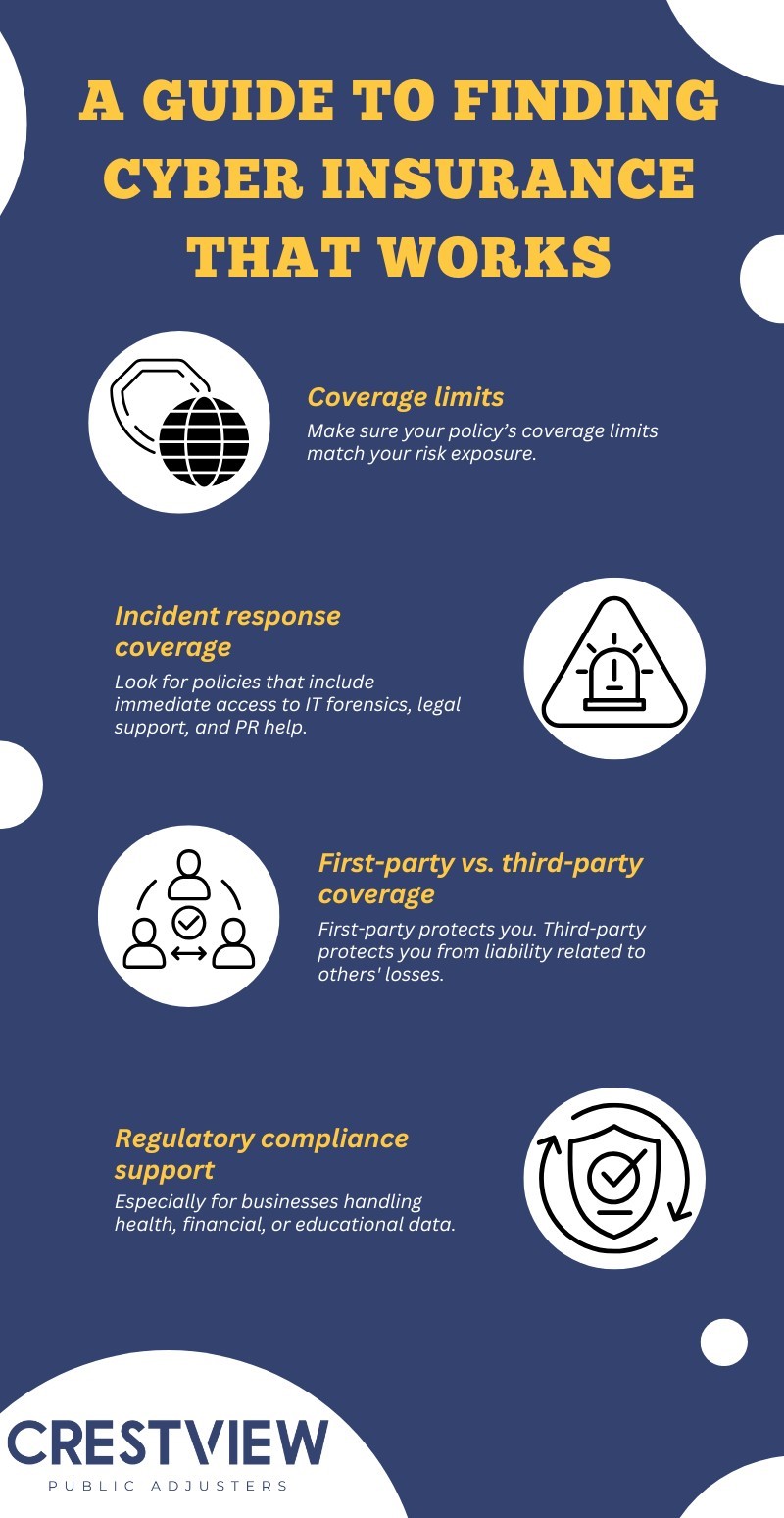Key Points:
- Individuals and businesses with any digital footprint are at risk and may need cyber insurance in 2025.
- Cyber threats have evolved beyond large corporations—small businesses, remote workers, and even freelancers are now targets.
- Having the right cyber coverage helps mitigate financial and legal risks when a cyber incident occurs.
Anyone with digital assets, online operations, or access to sensitive data should strongly consider cyber insurance in 2025. From individuals with online businesses to corporations with global infrastructures, the increasing threat of cybercrime makes this type of insurance a vital part of any risk management strategy.
Cybercriminals no longer limit themselves to high-revenue enterprises; they now target the underprepared—small businesses, independent contractors, and even remote workers. So, who needs cyber insurance in 2025? The answer is clear: anyone with a digital presence.
Why Has Cyber Insurance Become Essential?
The need for cyber insurance in 2025 isn’t just about avoiding inconvenience—it’s about financial survival.
As cybercrime becomes more targeted and sophisticated, more people are finding themselves vulnerable to attacks. In years past, most cyber insurance policies were written for enterprise-level businesses. Today, even small operations, gig workers, and solopreneurs are at risk due to the expanding surface area of attack vectors: remote devices, smart technologies, cloud-based software, and digital financial transactions.
Cyber insurance now covers a wide range of losses:
- Data restoration and recovery after ransomware attacks
- Legal liability for leaked customer data
- Public relations and reputation management
- Business interruption costs
- Regulatory fines and penalties
Without a cyber insurance policy, a single breach could destroy months—if not years—of business progress. The shift in how cybercriminals operate makes this type of protection essential.
What Types of Individuals and Businesses Should Prioritize Cyber Insurance?
It’s not a matter of if you’ll be targeted—it’s when. Here’s who really needs cyber insurance in 2025:
Small and Medium-Sized Businesses
SMBs are prime targets because they often lack robust cybersecurity infrastructure. Hackers know that SMBs might not afford IT departments, let alone full-time cybersecurity experts. Yet, many handle sensitive customer data, making them a goldmine for bad actors.
If you process credit card payments, store customer information, or rely on cloud tools—this applies to you. Cyber insurance for small businesses can cover legal costs, system damage, and regulatory fines.
Freelancers and Remote Professionals
Freelancers working with client data—graphic designers, copywriters, virtual assistants, consultants—often don’t realize they’re exposed. A breach of client files or even an unsecured Wi-Fi connection can open the door to legal liability.
In an era where remote work is standard, even using public Wi-Fi without proper security can lead to data theft. A cyber insurance policy ensures you’re protected from losses due to client claims or service interruptions.
Healthcare Providers and Private Clinics
Health data is some of the most sensitive information around. HIPAA violations due to cyber incidents can result in fines and lawsuits. Whether you’re a therapist, dentist, or operator of a private clinic—cyber insurance is vital.
E-commerce and Online Retailers
Handling transactions online? Then you’re handling customer data. Whether you sell through Shopify, Etsy, or your own website, breaches can cost you customer trust, inventory access, and thousands in penalties.
Educational Institutions and Online Course Creators
Storing student data, online payment records, and course content puts education-based platforms at risk. Cyber insurance covers data loss and legal defense in the event of a privacy breach.

What Does Cyber Insurance Typically Cover?
To understand who needs cyber insurance in 2025, it’s important to know what’s typically included in a standard policy. Cyber insurance policies may vary by provider, but generally, they cover:
- Data breaches and theft: Includes customer or employee data compromised through hacks or insider threats.
- Ransomware and extortion: Covers ransom payments, forensic investigations, and data recovery efforts.
- Business interruption: Replaces lost income due to downtime following a cyber incident.
- Third-party liabilities: Protects you if customers, clients, or partners sue you for damages.
- Regulatory fines: Covers penalties from non-compliance with data privacy laws (GDPR, HIPAA, etc.)
- Cyber forensics and legal fees: Helps with investigation costs and legal representation.
Each policy is customizable, so it’s important to review your coverage closely with a public adjuster or insurance claims expert.
What Happens if You Don’t Have Cyber Insurance?
Not having cyber insurance in 2025 is like driving without a seatbelt—risky and potentially devastating.
Here’s what you’re exposing yourself or your business to:
- Uncovered financial loss: Recovery from ransomware or stolen funds could cost hundreds of thousands.
- Loss of customer trust: Once customer data is compromised, regaining trust is difficult and slow.
- Out-of-pocket legal costs: Lawsuits can arise, especially if sensitive customer data is involved.
- Operational downtime: Every minute your systems are down, you’re losing business—and reputation.
Cyber risks are no longer hypothetical. Without a cyber insurance safety net, a single attack could end your business.
How to Choose the Right Cyber Insurance Policy
If you’ve decided that you fall into the category of who needs cyber insurance in 2025, choosing the right policy is your next step.

Consult with a public adjuster or an insurance specialist to help compare options and ensure that your policy aligns with your risk profile.
Don’t Assume You’re Safe Just Because You’re “Small”
One of the biggest myths in cybersecurity is that hackers only go after the big guys.
In reality, small businesses and individuals are often preferred targets because they’re less protected. Cybercriminals use automated tools to scan for weaknesses—they don’t care if you’re a solopreneur or a Fortune 500 firm. If your digital defenses are weak, you’re on the list.
Who Actually Needs Cyber Insurance in 2025?
Let’s bring it all together. Who needs cyber insurance in 2025?
- Anyone storing or transmitting sensitive information
- People or businesses operating online
- Organizations required to comply with data regulations
- Businesses reliant on digital platforms for income
- Professionals who could face lawsuits over cyber-related damages
If your day-to-day operations include even one of those, cyber insurance isn’t optional—it’s essential.
Get Expert Help Filing Cyber Insurance Claims
Cyber incidents don’t just cost money—they bring confusion, paperwork, and stress. That’s where Crestview Public Adjusters come in. We help individuals and businesses in New York, New Jersey, and Florida navigate the complicated world of cyber insurance claims, ensuring you get the maximum payout you’re entitled to.Whether you’re recovering from a ransomware attack or disputing a denied claim, our experienced team will fight for your rights. Contact us today—let Crestview Public Adjusters handle your cyber insurance claim with precision and care.

